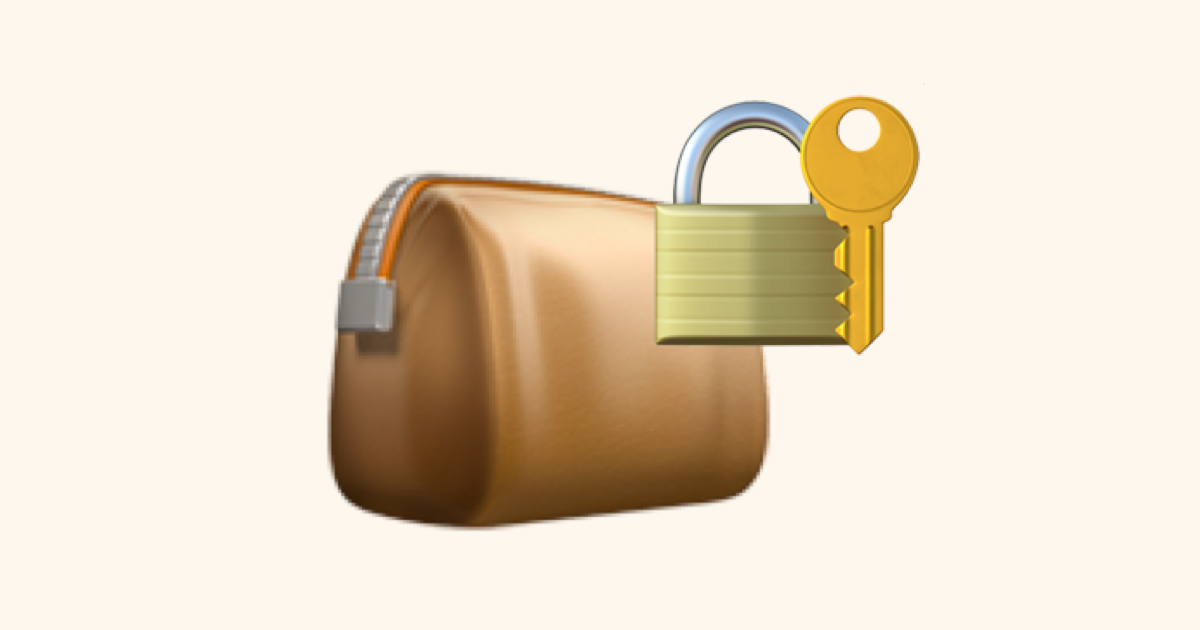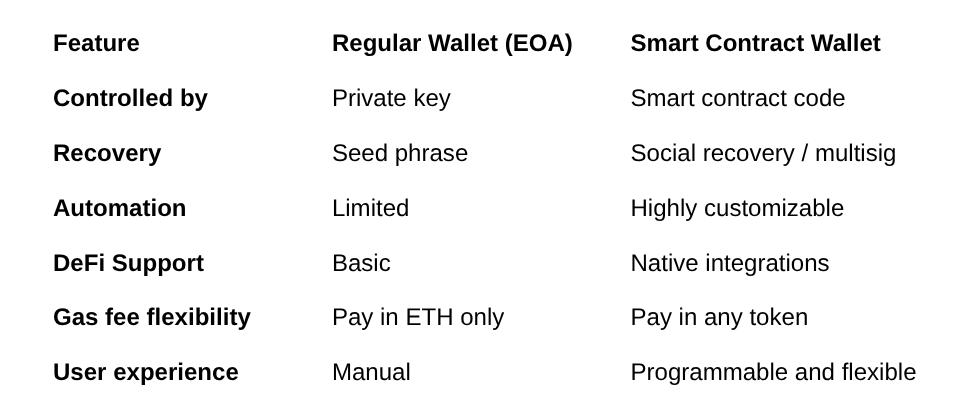
A smart contract wallet is a blockchain-based wallet powered by self-executing code. Smart contract wallets are designed not just to hold your assets but to actively manage them with programmable features, better security, and more flexibility than traditional wallets. By using smart contracts instead of relying only on private keys, these wallets help you automate, customize, and secure your digital finances in ways that regular wallets simply can’t.
Unlike a traditional wallet that is controlled by a single private key, a smart contract wallet is controlled by smart contract code that can enforce conditions like spending limits, two-factor authentication, or even wallet recovery options.
This technology is enabled by account abstraction through Ethereum’s ERC-4337 token standard. Wallets no longer need to rely on private keys or centralized relayers. Instead, users interact directly with smart contracts as their main accounts.
Enhanced Security
Smart contract wallets use encryption and multi-layered rules to reduce the risk of hacks and human error. Unlike regular wallets, which are vulnerable if a private key is lost or stolen, smart contract wallets can include added protections like social recovery or multisignature approval.
Recovery Options
Smart contract wallets can allow social recovery, which lets you regain access with the help of trusted contacts instead of relying solely on a seed phrase.
Customization and Control
You can set up rules to control how and when their assets are used. You can limit how much is spent daily, require multiple signatures for approval, and configure automations within your wallet. For instance, you can offer temporary access to your wallet through session keys that only work until the session ends. You could limit yourself to only P1,000 worth of daily transactions or set up auto-payments for subscriptions—things not possible with traditional crypto wallets.
Better DeFi Access
Smart contract wallets make it easier to interact with decentralized finance (DeFi) platforms without needing extra apps or intermediaries.
Shared Access
You can set up a smart contract wallet for multiple users, such as teams or families.

Smart contract wallets unlock a wide range of possibilities, especially for regular users and businesses in Web3, including:
While smart contract wallets offer major improvements, they also come with several challenges. First, they can be complex and require skilled developers to program. Bugs or logic errors can lead to irreversible losses since transactions are irreversible. Once a smart contract executes, it’s final. Advanced customization also leaves more room for setup mistakes or poor design.
Smart contract wallets represent a major step forward in how we manage digital assets. They offer a new level of flexibility, security, and control that simply isn’t possible with traditional wallets. Smart contract wallets give us a glimpse into the future of self-custody where users have more control without sacrificing security.